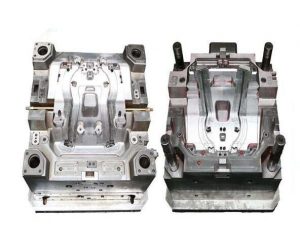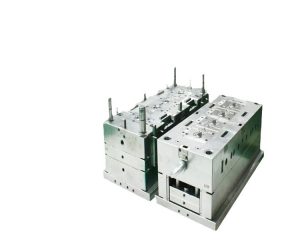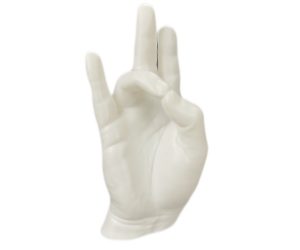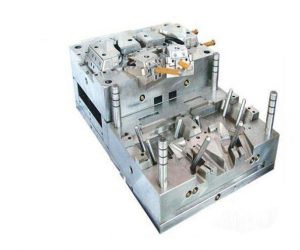Picking the right molding supplier is key to your project's success. Whether you need plastic injection molding, co-injection molding, or any other type of molding services, choosing a reliable and skilled supplier ensures high-quality parts, timely delivery, and good value for money. Here’s a straightforward guide to help you find the perfect supplier:
1. Know Your Needs: Clearly outline what your project demands, including the type of molding process, material specifications, production volume, quality standards, and budget constraints. A well-defined scope helps you clearly communicate your needs to potential suppliers.
2. Check Experience and Expertise: Look for a supplier with solid experience in the specific type of molding you need. Ask about their past projects to see if they have delivered similar work successfully.
3. Quality Control: Make sure the supplier has strong quality management practices. Certifications like ISO 9001 show they are committed to maintaining consistent quality throughout production.
4. Modern Tech and Equipment: Evaluate their machinery to ensure it’s up-to-date and well-maintained. Advanced equipment often means better part quality and more efficient production.
5. Material Options: Choose a supplier that offers a wide range of materials suitable for your project. This variety lets you pick the best material for your specific needs.
6. Design and Engineering Help: A good supplier should offer design and engineering support to optimize your part for molding. They can suggest changes to improve manufacturability and cost-effectiveness.
7. Prototyping and Testing: Find a supplier that offers prototyping services and conducts thorough testing before full-scale production. This helps catch any design issues early on.
8. Production Capacity and Lead Times: Ensure the supplier can handle your production volume and meet your desired lead times. A reliable supplier can efficiently manage both small and large orders.
9. Customer Reviews and References: Read online reviews and ask the supplier for references. Contact their clients to get firsthand feedback on their experience.
10. Good Communication: Effective communication is crucial. Choose a supplier that is responsive, transparent, and offers excellent customer support. Being kept informed builds trust.
11. Fair Pricing: While cost is important, be wary of quotes that seem too low. Look for a supplier with a fair and transparent pricing structure that reflects the overall value and quality of their services.
By following these steps, you can find a molding supplier that fits your project needs and delivers high-quality parts that meet or exceed your expectations. Take your time to research and compare multiple suppliers to ensure a successful partnership.
Introduction:
Choosing the right molding supplier is critical to the success of any manufacturing project. With so many options available, it can be challenging to know where to start. In this comprehensive guide, we'll explore the different types of molding suppliers, key factors to consider when choosing a supplier, questions to ask potential suppliers, how to evaluate suppliers, and best practices for working with them.
Types of Molding Suppliers:
Hay varios tipos diferentes de proveedores de moldes en el mercado, cada uno con sus ventajas y desventajas únicas. Los proveedores de moldeo por inyección utilizan un proceso de inyección de alta presión para moldeo de materiales termoplásticos en formas complejas. Los proveedores de soplado utilizan la presión atmosférica para expandir el plástico calentado en el molde para fabricar botellas, contenedores y otros objetos huecos. Los proveedores de moldeo por rotación, por su parte, fabrican grandes objetos huecos con materiales termoplásticos a través de un movimiento de rotación lento. Los proveedores de Termoformado usan calor para suavizar las láminas de plástico y luego las moldean en diversas formas. Según las necesidades de su proyecto, uno o más tipos de proveedores pueden ser muy adecuados para usted.
Factors to Consider When Choosing a Molding Supplier:
When choosing a molding supplier, it's essential to consider several factors. Quality should always be a top priority, but price, lead time, capacity, location, logistics, and customer service are also critical considerations. Quality refers to the consistency and reliability of the supplier's products and services. Price refers to the cost of the supplier's products and services, including any associated shipping and handling costs. Lead time refers to the time it takes for the supplier to produce and deliver the product. Capacity and scalability refer to the supplier's ability to handle large and small orders, as well as their ability to scale up or down as needed. Location and logistics refer to the supplier's proximity to your business and their ability to handle shipping and transportation. Customer service refers to the supplier's responsiveness and ability to provide support and assistance when needed.
Questions to Ask Potential Molding Suppliers:
When considering a molding supplier, it's essential to ask them several questions to determine whether they're the right fit for your project. Production capabilities, quality control measures, materials and equipment, certifications and compliance, communication and collaboration, and payment and delivery terms are all critical areas to explore.

How to Evaluate Molding Suppliers:
Evaluating molding suppliers involves requesting samples and prototypes, conducting factory visits and audits, checking references and reviews, comparing multiple quotes and proposals, and negotiating contracts and agreements. By thoroughly evaluating potential suppliers, you can ensure that you choose a partner that can meet your needs and deliver high-quality products.
Best Practices for Working with Molding Suppliers:
Once you've chosen a molding supplier, it's essential to establish clear specifications and expectations, maintain regular communication and feedback, resolve issues and disputes, and build long-term relationships and partnerships. By following these best practices, you can ensure that your partnership with your supplier is productive, efficient, and mutually beneficial.
Conclusion:
Picking the right molding supplier is super important for making any manufacturing project a hit. Think about the different types of suppliers out there and what you should look for when choosing one. Ask potential suppliers some key questions, figure out how to judge them, and learn the best ways to work with them. This way, you can make smart choices that lead to top-notch products and lasting success. Just remember, always focus on quality, keep the lines of communication open and frequent, and build strong ties with your supplier for the best outcome.




